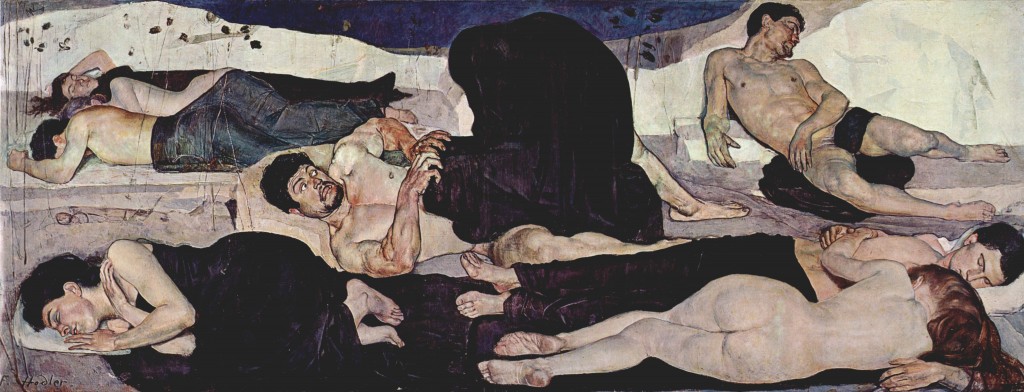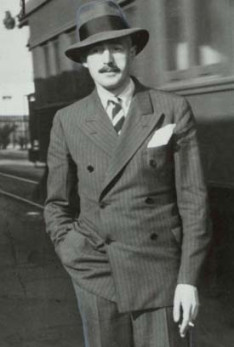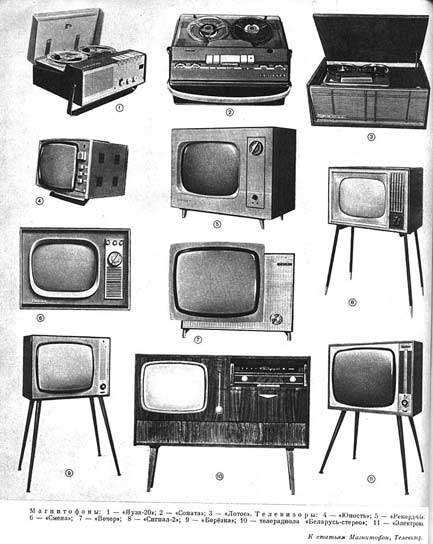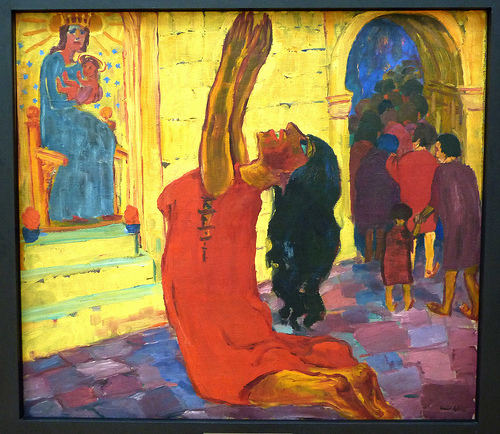
“Literature is never the product of a single subject. There are always at least three actors: the hand that writes, the voice that speaks, the god who watches over and compels”
Roberto Calasso
On the evening in which the Oscars bestowed best picture upon a valentine to the CIA and to itself, in the insufferably tumescent and self conscious Argo, the US was continuing its build up in Africa, and the White House announced Obama would be visiting Israel and Bibi in mid March. The re-colonizing of Africa is, of course, mostly about resources.
As Richard Raznikov wrote:
America is using its military for the purposes of the oil companies, the arms industry, and the bankers, and therefore its will move not only against any insurrection or pro-democracy movement in Mali but against the government of Algeria, which is proving to be difficult in negotiations over its oil.
Algeria, now that Libya has been destroyed by the U.S., is the strongest force for African independence and unity. It is therefore in the plans of Obama and his crew.
As we watch this story unfold, it would be wise to keep this in mind: in Iraq, Saddam Hussein, who had been an ally of the Bush family and the U.S., was a secular leader hostile to extremist religious elements. He was not only not associated with al-Qaida, the ridiculous lie peddled by Bush, Cheney and those criminals, he was its antagonist. In Libya, Ghaddafi was a major problem for the same extremists, brokering deals to limit their influence and prevent them from obtaining large stores of military equipment. In fact, the CIA backed against Ghaddafi the very people we are now claiming we must intervene against in Africa.
The ‘picture’ that is being served up by the corporate media and Pentagon makes no sense.

John Pilger:
“Reminiscent of the Scramble for Africa in the late 19th century, the US African Command (Africom) has built a network of supplicants among collaborative African regimes eager for American bribes and armaments. Last year, Africom staged Operation African Endeavor, with the armed forces of 34 African nations taking part, commanded by the US military. Africom’s “soldier to soldier” doctrine embeds US officers at every level of command from general to warrant officer. Only pith helmets are missing.”
The official narrative is what matters, not reality. But this topic segues into a number of others. Culturally the emphasis on platitude seems endemic in the US. The cultural is part of a larger system that includes or fosters *careerism*. The weird thing about careerism is that it is often most virulent among those with almost no career.
Over the last forty years, about, the sense of high art and popular art has shifted, and mostly just blurred to the point of meaninglessness. And yet, not totally. Hollywood, in its shift toward the re-narrating of real events, has come to rely more and more heavily upon the State Department and Pentagon, then it’s also true the corporate owned media is scripting the same stories via op-ed pieces and news coverage that Hollywood is. The Affleck film is not greatly different than Bigelow’s or Clooney’s various stupidities, let alone the crude open bigotry of a Chuck Norris … but people, white Americans, educated white americans, of a certain degree of comfort, embrace these stories. Why do they exhibit so little critical energy in reading a film like Argo? Why do they not ask about what “links” means when the U.S. government suggests someone just bombed into a charred rubble had “links” to terrorism? Why do they not ask why EVERY SINGLE FUCKING REPRESENTATION OF AN ARAB is a cartoon? WHY?
What is interesting is that an educated liberal class can applaud Affleck and at the same time make fun of Chuck Norris or Stallone. They can watch Homeland or The Good Wife, and never really reflect on the reactionary elements of these shows. I see support for a war criminal and sadist like Hillary Clinton growing — I see Madelaine Albright (a monster, a true ghoul) applauded by women’s groups. There is a class element to all this. The educated audience for Affleck is offended by the vulgarity of Norris. And Norris is an arch Republican. I once had Chuck walk out of a meeting with me because of my politics….but I digress. Stallone and Arnold are Republicans. George Clooney is a Democrat. The message is not less racist or reactionary. Obama is actually far worse than Bush at this point. But that’s not how the master narrative works.

This brings me to something a friend mentioned the other day, about genre. And it’s something I have wanted to introduce as a topic for a while. He said that well done genre (meaning in the context, crime film, TV, or novel) was the last refuge from *white snark* — from the overly ironic intrusion into form. In a sense this is true — its an astute observation and I think this somehow connects to the class divide between Chuck Norris and Ben Affleck.
The key words, though, as *well done*. There is in the works of writers like Jim Thompson, or Dashiell Hammett or Chandler, and in David Goodis or James Cain, a certain religiosity to the form. A devotional adherence to standards of the genre. Now — what IS genre?

Well, genre in the broadest sense is any category of art that is based upon a set of stylistic conventions. When people hear the word now, it means, usually, a set of formal conventions that identify a work — in our case, narrative — such as crime or science fiction or western, etc. There are sub categories….and hyphenates…..but the point is that as popular culture advanced, the nature of genre changed. I suspect today, everything is genre. Shakespeare is romantic comedy or tragedy. MacBeth is a crime story. Lear a family drama. But my friend is right; and he is right because crime novels (and perhaps romances, in another register) are defined by close rules of composition and pretty well established conventions.
The paradox here is that cheap genre can be, and usually is, the province of corporate kitsch entertainment. Formula.
But the most serious genre work actually operates in opposition to formula — for it must embrace history, and not erase it.
To parody a well-known saying, I shall say that a little formalism turns one away from History, but that a lot brings one back to it.
Roland Barthes, Mythologies

Dashiell Hammett
Still, there are several factors at work in corporate culture. The Coen Brothers for example, are parastic scavengers of the work of great writers —- that they have good taste only makes it worse. The parasitic bleeds the superficial while missing the formal. The reason Jim Thompson’s novels have made so few good movies is because Thompson’s austere narratives belong on the page. They are not visual, they are not stylistic in the sense that Thompson wrote of the pathologies of poverty and marginalization from the point of view of the outsider, not the slumming petit bougeoise. That Thompson wrote the script for Kubrick’s The Killing (based on a Thompson book) and then saw it rewritten by the director and himself cheated out of his credit, only suggests, again the class nature of Hollywood. Perhaps the best version of a Thompson was Peckinpah’s The Getaway, though Peckinpah ends the film just where the genuine Thompson vision of a nightmare begins. Again, McQueen thought the original Thompson script lacked action.

But I digress….the simpler explication here is that genre is a form of myth system. It both creates and reflects cultural ideology. In the case of crime fiction, it reflects something about white maleness, and it also can be seen, along with the western (which two genre forms overlap a good deal) to create certain already established ideological meanings — inherited from the historical underpinnings of American society. The small time hoods and psychopaths of Thompson and Goodis, or the knight errants of Chandler or Ross MacDonald, are traversing similar terrain but in different fashion. Perhaps Hammett of all modern crime writers, delivered the clearest political vision of labor and wealth and privilege of any of the dime novels writers. Where things get complicated is how sub-genres…..*blacksploitation* for example, operate within the myth code.
Althusser:
“in a class society ideology is the relay whereby, and the element in which, the relation between men and their conditions of existence is settled to the profit of the ruling class”
There is a dialectical reading of genre — lets say of crime or detective fiction and film. There is firstly, what Althusser called an ideological state apparatus. Corporate culture, Hollywood, is such an apparatus, and as such is one among many other tools of control (essentially).
There are always similtaneous ideologies at work — and its useful to pry them apart the better to recognize what connects them — which in the end is, of course, the ruling class value system. One significant part of the ideological state apparatus is that we see a relationship between the subject and the product. In this case the film, lets say. They create the subject. Same as advertisers do. Also, to be clear, ISA’s include schools, churches, unions, guilds, and communication….as well as political parties.
The state apparatus (military, police, prisons, etc) operate by violence and force. The ideological state apparatus by …..*ideology*. What matters in terms of this discussion is that despite the numerous ISA’s and seeming diversity, the reality is that all of them fall under the umbrella of the ruling ideology of the state.

Althusser
Argo wins best picture. Django Whatever wins something, and celebrities prance about, and some are drunk, and the message for all that is identical to the message in local first grade classes, the same as the message you get in church, or in yoga class for that matter. The language used can express nothing else. This is the real point to all this; everyday life is colonized by a system that presents itself as diverse, but in fact is absolute in its singleness. How does one explain Affleck’s film is profoundly reactionary? It requires work to do so. It requires one find a less compromised vocabulary. The normalizing of war and American expceptionalism cuts across everything. NATO bombing Belgrade … because Milosevic was a monster. Was doing whatever bad thing. All fantasy, all pure invention. Total and 100% invention — but the master narrative has been normalized by the NYTimes, and other ISA’s. NGOs are certainly ISA’s — and there may not be a clearer example, actually, than the larger more visible NGOs such as Amnesty International. Kosovo is a plucky little “free” country now. Israel is our friend and the only democracy in that, you know, arab part of the world.
Both state apparatus and Ideological state apparatus work to reproduce the relations of production. The difference is that the ideological state apparatuses — which today has grown exponentially since Althusser wrote his essay — are diverse, autonomous (mostly) and have as a raison d’etre the facility to absorb opposition and dissent (and that which cannot be digested is simply handed over to the State Repressive Apparatus and you get your ass tossed in jail). In pre-capitalist society the ISA was essentially the Church. The French Revolution was driven to correct the power of this ISA…with complicated and not immediate results. In any event, today the primary role of the ISAs is educational. Ben Affleck and Quentin Tarantino and Speilberg are educators. FOX news and MSNBC are educators. Hill & Knowlton and the Pentagon are educators.

Speilberg’s Lincoln is schoolwork. As Althusser says, ” all ideological state apparatuses, whatever they are, contribute to the same result: the reproduction of the relations of production, i.e. of capitalist relations of exploitation”.
All of it does this.
Now, back to genre….after a long digression….because the problem with a good deal of post modern media studies is the primacy of this idea that genre fits within other genres, and that is how they are identified, and that the post modern text is one aware of itself. This, rather clearly, leads us into a logical cul de sac.
The idea is often that post modernism destablizies the dominant ideology through an ironic and self-conscious interpellation of the subject and the ruling ideology. I pretty much don’t think that’s true. But I think we need to look a lot more at what ideology is, and thats a rather gigantic topic.

But the short hand is (or one short hand version) that ideology is a false or imaginary picture or description of the subjects actual material condition. It obscures and mystifies and hides reality. It promotes the values of the ruling power, (by normalizing violence and punishment while repetitively hammering home meaningless abstractions like democracy, freedom, etc. that serve to also salve the predictable and inevitable confusion of such mass contradictions.
The ironic now serves to stabilize, not destabilize. What is described as self awareness on the part of the narrative or artwork, is simply the building of a stronger enclosure, an ahistorical and compulsively repetitive framework for the exhibition of less and less. The sincerity of genre, of that which has rejected irony, begins to feel something like what one senses in minor apprentices of Goya or Da Vinci.
The sense of rightness, of the good carpenter. Suddenly, Jim Thompson or James Cain seem almost monks camped in the far outposts of empire. Now, there is still a masculinist white trope in here….though women writers like Flannery O’Conner and Patricia Highsmith are interesting aberrations. The point though is that good genre today, that work in which one senses the rejection of master narrative AND the rejection of snark or irony or sarcasm, become resonant in ways not likely intended.
The dialectic –that which promises unity, delivers the opposite. That which promises disunity, is serving the ISAs—- the reproduction of the relations of production. Ideological state apparatus went from Church, to School, to Hollywood and social media. And today, the first two are subsumed in the last stage.

Simon Critchely writing of Adorno;
“Despite the strict impossibility of practising philosophy from the standpoint of redemption, what is essential for Adorno is the *demand* placed on thinking by imagining itself capable of assuming this standpoint. This is why the reality or unreality of redemption hardly matters. What is important is that the messianic demand and not weather this demand is underwritten by some guarantee of redemption. I think this is why the impossibility of the redemptive standpoint must be comprehended ‘for the sake of the possible’. In its very impossibility , the demand leaves open the horizon of the possible understood, I think, as the realm of future action.”
This was during Adorno’s reflections on Auschwitz. On the possibility of metaphysics at all.

That the nightmare of neo-Imperial globalization has cost tens of millions of people the possibility for anything even approaching a dignified life, an existence of hope, cannot be lost as the horizon here.
For Adorno saw questions about the meaning of the life as vulgar. If one has to ask, one has missed the point. If one has to ask the meaning of the primordial silence that stops the mimetic … in the presence of something transformative, then that bus has left, too.
Nihilism for Adorno was a strawman that allowed meaning to be restored. Its the sacrifical victim that must be slain…for then social wounds are healed. The dragon of meaninglessness — but, the enclosed word and image of the Spectacle means that battle is rigged. The dragon throws the fight.
Critchley again, on Nietzschean overcoming per Adorno……”Such attempts at overcoming are symptomatic of a reactionary modernism, whose ontologization of the social and facile positively lead ineluctably to fascism”
The very jargon of nihilism smacks of white male authority for some reason. Perhaps because it posits, undercover, the need to do battle….if not with oneself (recovery etc etc etc) then with corruption and decadence, etc. The same sense in which one must carefully find refuge, and a needed refuge, in sincere pulp narratives, in crime or detective novels, or romances…but even if tinged with the echos of a closet battle with potency and fecundity, it remains (I suspect) largely outside the Speilbergian school system…and that is a good thing.



There is a lot on here about sincerity and earnestness in work….and how, at least where we stand now, THAT is what’s truly subversive.
Well this is just everythibn I’m interested in –
this white snark as nihilism as white male authority, that posture of satisfaction with the status quo. It is the implication that the existing hierarchy is justified and natural. From this posture everything oppositional is pathologized – all passtionate opposition, all complaint and all empathy (which is derided as a neurotic and weak “liberal guilt” etc).
Okay but I would like to understand better the escape genre offers. I agree already – i blogged back in teh day at chabert and alphonse about this split after 1848…with realism of a kind taking on this value and primacy, as the mature culture of elite educated urbane serious bourgeois…and the genres beind born of whaty expelled from them, fancy, fantasy, adventure, wish fulfillment.
realism seems to justify what is – to invite us to prove our dignity, education and sophistcation in our acceptabce of all that we should actually refuse to accept
realism incites resignation to what those genres enact the fantasyt destruction of (and the expression of fear and woe)
something like this? you think?
so that realism is a kind of nihilism; this “maturity” of those fit to be clerks of empire. their “sanity”
but Critchley, I dunno. Something very off there it seems to me.
But much Goya…and David and Pierre Paul Proudhon and Girodet and Fuseli, many artitsis of the revolutionary era, as well as the writers, Bryon and the Shelleys above all…isn”t this after the fact the ancestor of disdained lower forms?
this story needs to tell the history of 1789-1848
that is where the story of genre and what it is now has to begin I think.
(with Alphonse van Worden right atthe centre in the two – newly discovered – versions of the Manuscript Found in Saragossa, one very enlightenment/rationalist and one very romantic/occult….one condition and the other. Indivuualist instrumental Reason and the holistic Reason of romanticism. This dialectic of enlightenment. MH Abrams classes Marx as this last romantic in the grand romantic tradition of the revolutionary era.)
“The ordinary relationship of the individual to so large an organization as the state is that of letting it do as it likes. Indeed, this phrase is one of the formulas of the age. The social life of human beings has become so broad and so dense, and relations so inextricably entangled, that no eye or will is any longer able to penetrate great stretches of it, and outside the tightly restricted circle in which he functions every person remains a child. The citizen’s underlying mentality was never so circumscribed as it is now, when it is running everything. Whether he likes it or not, the individual has to let things happen and does nothing. The Englishman and the American did not allow the children of central Europe to starve, they simply let it happen. And we ourselves did not play our role in the atrocities, even if we were actors, but simply allowed it to happen. If we want to change this however, we must be clear about the need for change. Anyone who believes – and it seems to be more than a few people and precisely the most zealous souls – that something could be changed by a warm heart rather than through cold-blooded organization ought to open his newspaper some morning and read in it all the accounts of a single day’s suffering and misfortune that it would have been possible to prevent: if he does not want to concede all this, indeed, if all he possesses is the capacity to make it physically palpable, no, to make it only as clear as the word ’empathy’ demands of each of us – he would go mad!
“The active counterpart to this letting things happen is the summary, general, routine treatment of people. The legal document is the symbol of the indirect relationship between the state and the human being; it is life become odorless, tasteless and weightless, the button you press; and if this causes a person to die you have not done it, because your whole consciousness was absorbed by the demanding task of operating the button. The act itself is the sentence of the court, the gas attack, the good conscience of our torturers; the act divides the individual in a most unhappy way between private person and functionary. But under present conditions we apparently cannot do without this kind of hygiene. ”
Robert Musil, from “Nation” as Ideal and as Reality, 1921